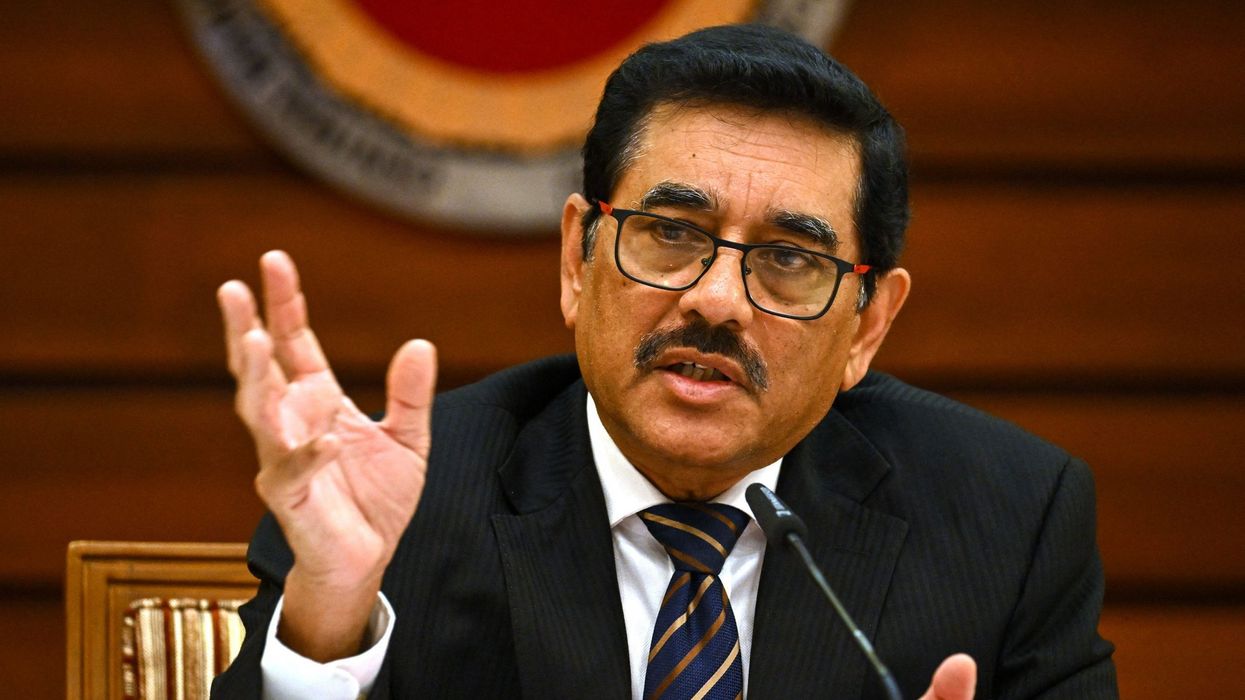THE man charged with clawing Sri Lanka out of bankruptcy said he had warned about economic calamity years before it hit - and was pressed into retirement for his troubles.
Central bank chief Nandalal Weerasinghe was asked to return to the island nation last year to help steer it through a financial collapse that triggered months of food shortages, petrol queues and nightly blackouts.
The 63-year-old said his mandate coincides with Sri Lanka's one final opportunity to rescue itself from a cycle of economic shocks that stretches back decades.
"There's no excuse this time, no second chance, we have to get it right this time," he said at his Colombo office last week.
"This is where I think crisis is an opportunity."
Weerasinghe was the Central Bank of Sri Lanka's number two when Gotabaya Rajapaksa was elected president in 2019 on populist promises of generous tax cuts.
Government debt soared as Rajapaksa pursued an unorthodox policy of printing exorbitant amounts of money while holding down exchange and interest rates to spur growth.
"As the senior deputy governor, I always raised concerns," Weerasinghe said.
But with Rajapaksa's administration steamrolling objections from him and other senior central bankers, Weerasinghe said he felt he had no option but to take early retirement.
"Obviously, I saw if those policies continued in that way... we'll end up in a situation that I said at that time was exactly what happened," he added.
Weerasinghe left for a quiet life in Australia, spending time with his children and hitting the golf course five days a week, when Rajapaksa asked him to return and helm the central bank.
Sri Lanka’s currency was in freefall and the government was days from defaulting on its $46 billion (£36bn) foreign debt.
By July, Rajapaksa had fled the country after months of protests demanding his resignation for mismanaging the crisis.
Rajapaksa's successor, Ranil Wickremesinghe, has sought to repair the nation's finances through a $2.9bn (£2.26bn) International Monetary Fund bailout.
The rescue package commits Sri Lanka to an austerity regime of steep tax hikes and an end to generous consumer utility subsidies, both of which have proven deeply unpopular.
Its passage was reportedly held up for months when China - Sri Lanka's largest bilateral creditor - resisted agreeing to a haircut on its loans.
Chinese debt has been controversial politically, with Rajapaksa and his elder brother Mahinda - himself a former president - accused of taking Beijing's money to finance costly vanity projects.
Weerasinghe said the delays to the IMF package were understandable because Beijing was a relatively "new player" to bilateral lending.
"China is fully on board and agreed to support Sri Lanka and help Sri Lanka to come out of this crisis," he said.
Sri Lanka had already gone to the IMF cap in hand 16 times before last year, but failed to stick with agreed-upon reforms, giving it a serious credibility gap.
Weerasinghe said the country had two choices this time around: if it sticks to its current IMF programme, its economy would return to normal within "two to four years".
If it did not, Sri Lanka would no longer be indulged if it fell off the wagon and returned to its spendthrift ways at the first sign of stability, he warned.
"This time, the 17th time with the IMF, is different," he said.
"If you are trying to go back to another programme, that will be most difficult, and I think that will be the end of the story."
(AFP)





